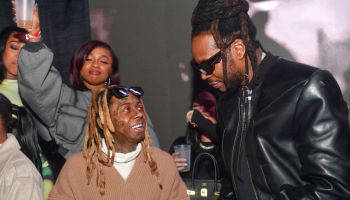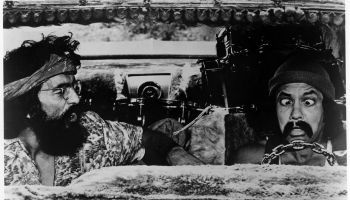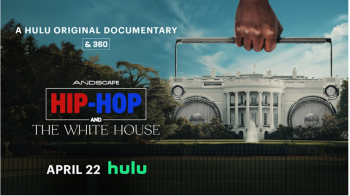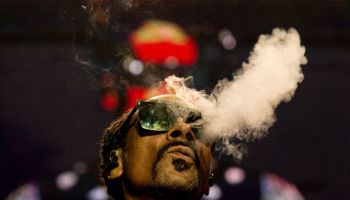On the day after Thanksgiving in 2012, Jordan Davis, a black 17-year-old, was shot and killed by a 45-year-old white man over an argument that was fueled by loud rap music at a Jacksonville, Fl. gas station.
On Feb. 3, jury selection finally began for the first-degree murder trial of Michael Dunn.
But as a judge fields potential jurors in Florida’s second high-profile murder trial in less than a year, many can’t help but paint the parallels between Jordan and another unarmed black teen shot dead — Trayvon Martin.
Both Jordan and Trayvon were 17. They died just months apart. Both were unarmed when shot by white men in Florida. Both Zimmerman and Dunn have cited Florida’s controversial Stand Your Ground law in their defense. Both were regular teenagers. And as Jordan pointed out to his father during a conversation about the tragic death of Trayvon, they both looked alike.
But even in those similarities, there are differences. In America, the total disregard for the value of a young black man’s life does not make these situations a monolith — we cannot continue to group them together as to easily excuse them.
Jordan Davis’ death was a tragic event that should be examined to the fullest to honor his life, find justice, prove that Stand Your Ground laws create a climate of fear and destruction, and send a message to the rest of America that these incidents will not be tolerated.
And as we gear up for Dunn’s trial, we decided to do just that. In preparation of the trial, here’s everything you need to know about the Dunn/Davis incident, and what to expect during the next few weeks in the courtroom.
The Shooting:
– Jordan Davis and three friends pulled into a gas station in Jacksonville the day after Thanksgiving 2012. The four were Black Friday shopping at a local mall before stopping at the gas station. Jordan was in the backseat.
– Michael Dunn was in a vehicle next to the teen’s SUV. He and his girlfriend were returning from his son’s wedding in Orange Park.
– Dunn later told police that he nicely asked the teens to turn the music down. They complied. A short while later, the music cut back on.
– The teens told police that Dunn made a remark about hating “thug” music. They admit they were playing their music loudly.
– According to Dunn’s police interview (which you can view above), one of the young men in the car said something about “killing.” Dunn asked what he said and the teen allegedly bent down in the car as if he was picking up a shotgun. Dunn retrieved his handgun.
– Transcript from police interview:
“I thought they were singing, but [then they said] you’re going to die [expletive removed]. Then it started getting a little louder. That’s when I popped my window down and was like, ‘You’re talking about me?’ And they was like you’re dead. You’re dead [expletive removed]! It was either a barrel or a stick but, sir, they’re like we’re going to kill you and then they said, ‘you’re dead [expletive removed].’ What I should have done was put the car in reverse, but that shotgun come up or whatever it was – fight or flight – and I don’t think there was time for flight at that moment because I was going to get shot.”
– Lucia McBath, the mother of Jordan Davis, testified in front of the U.S. Senate, telling them that Dunn said this to the boys before he shot: “You’re not going to talk to me like that.”
– Feeling “threatened,” Dunn shot four times into the SUV. When the teenagers started to retreat, Dunn chased the vehicle and shot four to five more shots.
– Jordan was fatally shot. The other teenagers in the car survived.
Arrest:
– After the shooting, Dunn and his girlfriend drove to their hotel and ordered pizza.
– The very next day, he drove to his home in South Florida. He was arrested. When asked why he didn’t contact the police immediately, Dunn replied:
“I wanted to come back to my hometown to do that – with our dog and everybody – where they needed to be. I didn’t want to bring a [expletive removed] storm in Jacksonville.”
– He was charged with second-degree murder and pleaded not guilty. Later, those charges were upgraded to first-degree murder.
Stand Your Ground Controversy:
– Shortly after the shooting, Dunn invoked the controversial law that allows one to use deadly force when they believe they are in imminent danger and have exhausted other means of escape.
– Dunn has repeatedly said that he felt threatened during the incident.
– Both McBath and Jordan’s father, Ron Davis, have fought tirelessly to reform Stand Your Ground laws since the shooting death of their son.
– In October of 2013, both Sybrina Fulton (Trayvon’s mother) and McBath spoke at a Stand Your Ground Senate panel.
“That man was empowered by the ‘stand your ground’ statute,” McBath said. “I am here to tell you there was no ground to stand. There was no threat. No one was trying to invade his home, his vehicle, nor threatened him or his family.”
“Even the Wild West had more stringent laws governing the taking of life than we have now. Stand-your-ground defies all reason. It goes against the sound system of justice established long ago on this very hill.”
– In November 2013, Florida lawmakers rejected a measure to repeal the Stand Your Ground self-defense law. Republicans met repeals with passionate dissent:
“Stand your ground is core to the American way of life,” Republican State Rep. Jimmie T. Smith said.
State Rep. Matt Gaetz, who oversaw the hearing, has been one of the strongest supporters of the law. “I don’t support changing one damn comma of the stand your ground law,” Gaetz said in August.
– Since the law’s passage in 2005, cases of justifiable homicide have risen 200 percent.
Racial Aspect:
– Despite the similarities between Zimmerman and Dunn, Dunn’s lawyer insists he did not profile Jordan and does not have a vigilante attitude when it comes to the shooting:
“There are no similarities to the Trayvon Martin case. He [Dunn] is horrified and devastated by the death of the teen,” Robin Lemonidis said.
– In October 2013, however, letters from Dunn emerged that painted an entirely different picture. In a letter to his grandmother (which he wrote from jail), Dunn went on a rant about “thugs:”
The jail is full of blacks and they all act like thugs. This may sound a bit radical but if more people would arm themselves and kill these (expletive) idiots, when they’re threatening you, eventually they may take the hint and change their behavior.”
– If you recall, Dunn described the music Jordan and his friends were listening to as “thug music.”
– In another letter, he insists he is not a racist, but does not tolerate “ghetto” culture:
“I’m really not prejudiced against race, but I have no use for certain cultures. This gangster-rap, ghetto talking thug ‘culture’ that certain segments of society flock to is intolerable. They espouse violence and disrespect towards women. The black community here in Jacksonville is in an uproar against me — the three other thugs that were in the car are telling stories to cover up their true “colors.”
– Click here to read excerpts from more of Dunn’s letters.
What To Expect In Court:
– Families of Dunn and Davis will be allowed into the courtroom. Both families will get eight seats.
– Jordan’s three friends who survived the attack are expected to take the stand during Dunn’s trial.
– The jury will consist of 12 jurors and four alternates.
– Dunn is expected to use his Stand Your Ground defense.
For more information on Jordan Davis, click here.
VIDEO/PHOTO CREDIT: NYT, YouTube, Getty, Screengrab
















